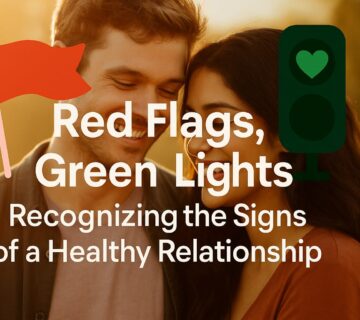When we talk about what “turns us on” in relationships, most people’s minds jump straight to physical attraction. But the real meaning of turn on in love is far more complex—it’s about what keeps us emotionally, mentally, and physically engaged with our partner over time.
In this comprehensive guide, we’ll explore:
✔ The deeper turn on meaning in relationship (beyond just physical chemistry)
✔ Different types of turn-ons (emotional, intellectual, behavioral)
✔ Real-life examples of turn-ons in relationships
✔ How turn-ons change as relationships evolve
✔ Why understanding your partner’s turn-ons leads to stronger connections
Whether you’re wondering “what does turned on mean in a relationship?” or looking to reignite the spark, this article will give you actionable insights.
What Does “Turn On” Really Mean in a Relationship?
At its core, a turn-on in a relationship is anything that creates attraction, excitement, or emotional closeness between partners. While physical chemistry plays a role, long-term relationships thrive on deeper turn-ons—shared values, trust, and emotional intimacy.
Key Aspects of the “Turn On” Meaning in Love:
-
Not just sexual: While physical attraction matters, emotional and intellectual turn-ons often sustain relationships longer.
-
Highly personal: What turns on one person might not affect another.
-
Evolves over time: Early turn-ons (like flirtation) may shift into deeper emotional bonds later.
4 Types of Turn-Ons in Relationships (With Examples)
1. Physical Turn-Ons
These relate to bodily attraction—how your partner looks, moves, or touches you.
Examples:
-
A partner’s smile, scent, or voice
-
The way they dress or carry themselves
-
Physical touch (holding hands, hugs, kisses)
Why it matters: Physical turn-ons create initial attraction, but they’re rarely enough for long-term love.
2. Emotional Turn-Ons
These come from feeling deeply understood, valued, and secure with your partner.
Examples:
-
Your partner remembering small details about your life
-
Feeling supported during tough times
-
Shared vulnerability and deep conversations
Why it matters: Emotional turn-ons build trust and lasting intimacy.
3. Intellectual Turn-Ons
Mental stimulation—sharing ideas, humor, or passions—can be just as turning on as physical touch.

Examples:
-
Laughing together at inside jokes
-
Debating topics you both care about
-
Learning new things together
Why it matters: Couples who stimulate each other’s minds often report higher relationship satisfaction.
4. Behavioral Turn-Ons
Actions that demonstrate confidence, kindness, or passion can be major turn-ons.
Examples:
-
A partner who takes initiative (plans dates, solves problems)
-
Someone who stands up for their values
-
Acts of service (making coffee, helping without being asked)
Why it matters: Behavior shows character—and character keeps attraction alive long-term.
“Turned On” Meaning in Relationship: How It Differs From Lust
Many confuse turn-ons in relationships with temporary lust. Here’s the difference:
| Lust-Based Turn-Ons | Love-Based Turn-Ons |
|---|---|
| Focus on physical attraction | Focus on emotional connection |
| Short-lived excitement | Long-term fulfillment |
| Surface-level (looks, flirtation) | Deep (trust, shared values) |
Example:
-
Lust: Feeling turned on by a stranger’s appearance at a bar.
-
Love: Feeling turned on by your partner’s loyalty after 10 years together.
Real-Life Examples of Turn-Ons in Relationships
To better understand the turn on meaning in relationship example, let’s examine real scenarios:
Example 1: The Power of Emotional Safety
Sarah’s biggest turn-on? When her partner notices she’s stressed and asks, “How can I help?”
→ Shows emotional attunement, which deepens intimacy.
Example 2: Intellectual Chemistry
Mark feels most turned on when his girlfriend debates him about politics—because she challenges his mind.
→ Mental stimulation fosters connection.
Example 3: Small Gestures, Big Impact
For Priya, seeing her husband dance badly in the kitchen is a turn-on—it shows his playful, confident side.
→ Authenticity is attractive.
How Turn-Ons Change as Relationships Evolve
What turns you on in a new relationship (butterflies, flirtation) often shifts over time. Here’s how:
Early Stages:
-
Physical attraction dominates
-
Novelty is exciting
Long-Term Love:
-
Emotional security becomes a turn-on
-
Shared history creates deeper attraction
Pro Tip: Keep exploring new turn-ons together to maintain excitement.
How to Discover Your Partner’s Turn-Ons
Since turn-ons meaning in relationship varies, try these tips:
-
Ask Directly: “What makes you feel most connected to me?”
-
Observe Reactions: Notice what makes them light up.
-
Experiment: Try new activities (travel, hobbies) to uncover fresh turn-ons.
Common Myths About Turn-Ons
Myth: Only physical turn-ons matter.
Truth: Emotional and intellectual bonds often create stronger attraction long-term.
Myth: Turn-ons stay the same forever.
Truth: As people grow, their turn-ons evolve.
Myth: Everyone is turned on by the same things.
Truth: Personal experiences shape what excites us.
Read More: What is the most effective online dating site?
Final Thoughts: Cultivating Lasting Turn-Ons
Understanding the turn on in a relationship meaning helps couples build deeper connections. Whether through emotional intimacy, intellectual chemistry, or small loving actions, nurturing these turn-ons keeps love alive.
For more on emotional intimacy, explore this research-backed guide from The Gottman Institute (high-authority link).
By focusing on what truly turns you and your partner on, you create a relationship that’s not just passionate—but enduring.
FAQ: Turn-On Meaning in Relationships
Q: What is the meaning of turn on in a relationship?
A: It’s anything (emotional, physical, or intellectual) that excites and deepens attraction between partners.
Q: What are common turn-ons for women?
A: Emotional security, good communication, and thoughtfulness are often key turn-ons for a girl.
Q: Can turn-ons fade over time?
A: They can shift, but couples who explore new turn-ons together keep the spark alive.
Q: How do I communicate my turn-ons?
A: Be honest! Say, “I feel closest to you when we…” and ask about theirs too.








No comment